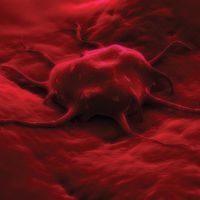Lupus Plays Unlikely Role as Ally in Cancer Fight
Patients diagnosed with lupus know only too well that the cells in their body are working against them as the condition progresses. Now, researchers at Yale University say they have found a way to take those same cells and use them to help cancer patients.

Patients diagnosed with lupus know only too well that the cells in their body are working against them as the condition progresses. Now, researchers at Yale University say they have found a way to take those same cells and use them to help cancer patients.
A study published in Scientific Reports showed promise that the antibodies in patients with lupus could prove beneficial in battling cancer cells “with deficient DNA repair mechanisms.”
“Patients with lupus make a wide range of autoantibodies that attack their own cells and contribute to the signs and symptoms associated with lupus,” noted James E. Hansen, an assistant professor of therapeutic radiology at the Yale School of Medicine, in a statement from the school. “Some of these antibodies actually penetrate into cell nuclei and damage DNA, and we suspected that we may be able to harness the power of these antibodies for use in targeted cancer therapy.”
The Yale statement noted that a person’s individual DNA code can determine how their cells develop and how “damage to this code can cause a cell to malfunction, die, or transform into a cancer cell.” While healthy cells are able to fix themselves some cancer cells have “defective DNA repair machinery and accumulate genetic mutations.”
During their research, the team discovered antibodies could help work with those damaged cells to fight the patient’s cancer. They reported that a specific antibody called 3E10 “inhibits DNA repair and sensitizes cancer cells to DNA damage.” The study also showed that “the DNA-damaging lupus antibody 5C6 is toxic to DNA repair-deficient cancer cells.”
“Lupus antibody-based cancer therapy is an emerging concept, and I believe were are just seeing the tip of the iceberg in terms of the potential of this approach,” Hansen said. “Now that we know that more than one lupus antibody has a selective effect on cancer cells, I am confident that additional lupus antibodies with even greater therapeutic potential await discovery.”
The study was supported in part by an American Cancer Society Institutional Research Grant.